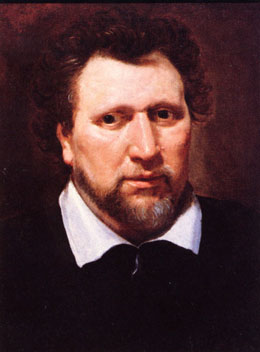
The man of the week is Ben Jonson: ruddy, large, convivial, viciously witty, convict, convert, pedant, satirist, playwright, poet laureate. How has it taken me so long to meet him? His characters – tricksy, seamy, comic London underbelly figures – seem to be the Jacobean forebears of Dickens’. (Sir Epicure Mammon, Justice Overdo, Dol Common are the easy friends of Bumble, M’Choakumchild and Vholes).
Jonson’s best speeches, however, clearly belong to his puritans. Here is the wonderfully named Zeal-in-the-land Busy (nearly beat by Tribulation Wholesome in The Alchemist, responding to a puppet show in Bartholemew Fair (1614)
Busy: Down with Dagon, down with Dagon! ‘Tis I will no longer endure your profanations...I will remove Dagon there, I say, that idol, that heathenish idol, that remains, as I may say, a beam, a very beam, not a beam of the sun, nor a beam of the moon, nor a beam of a balance, neither a house-beam nor a weaver’s beam, but a beam in the eye, in the eye of the Brethren; a very great beam, a exceeding great beam...Thy profession is damnable, and in pleading for it thou dost plead for Baal. I have long opened my mouth wide and gaped, I have gaped as the oyster for the tide, after thy destruction; but cannot compass it by suit or dispute; so that I look for a bickering ere long, and then a battle.
What rhetoric.
Comments